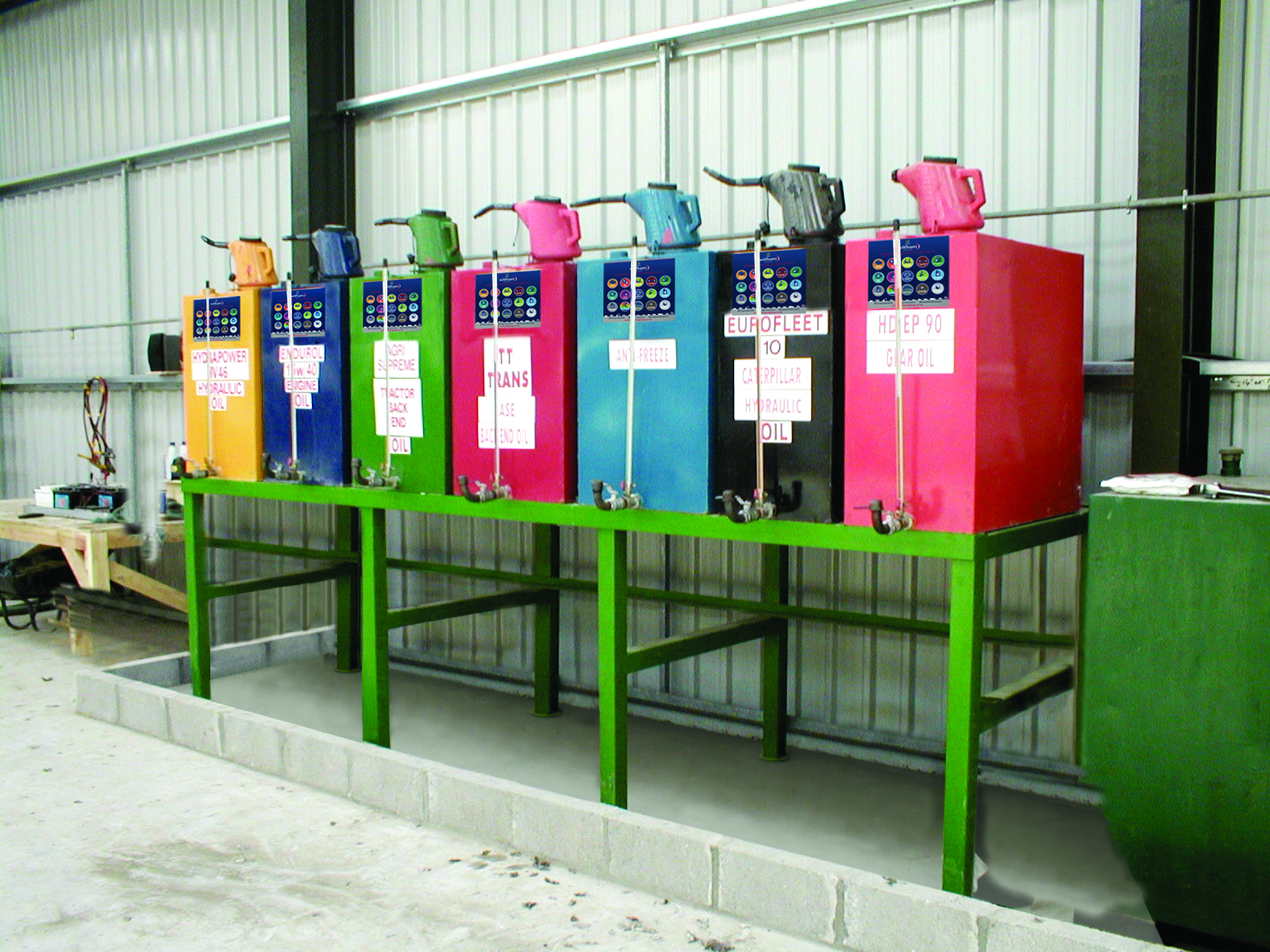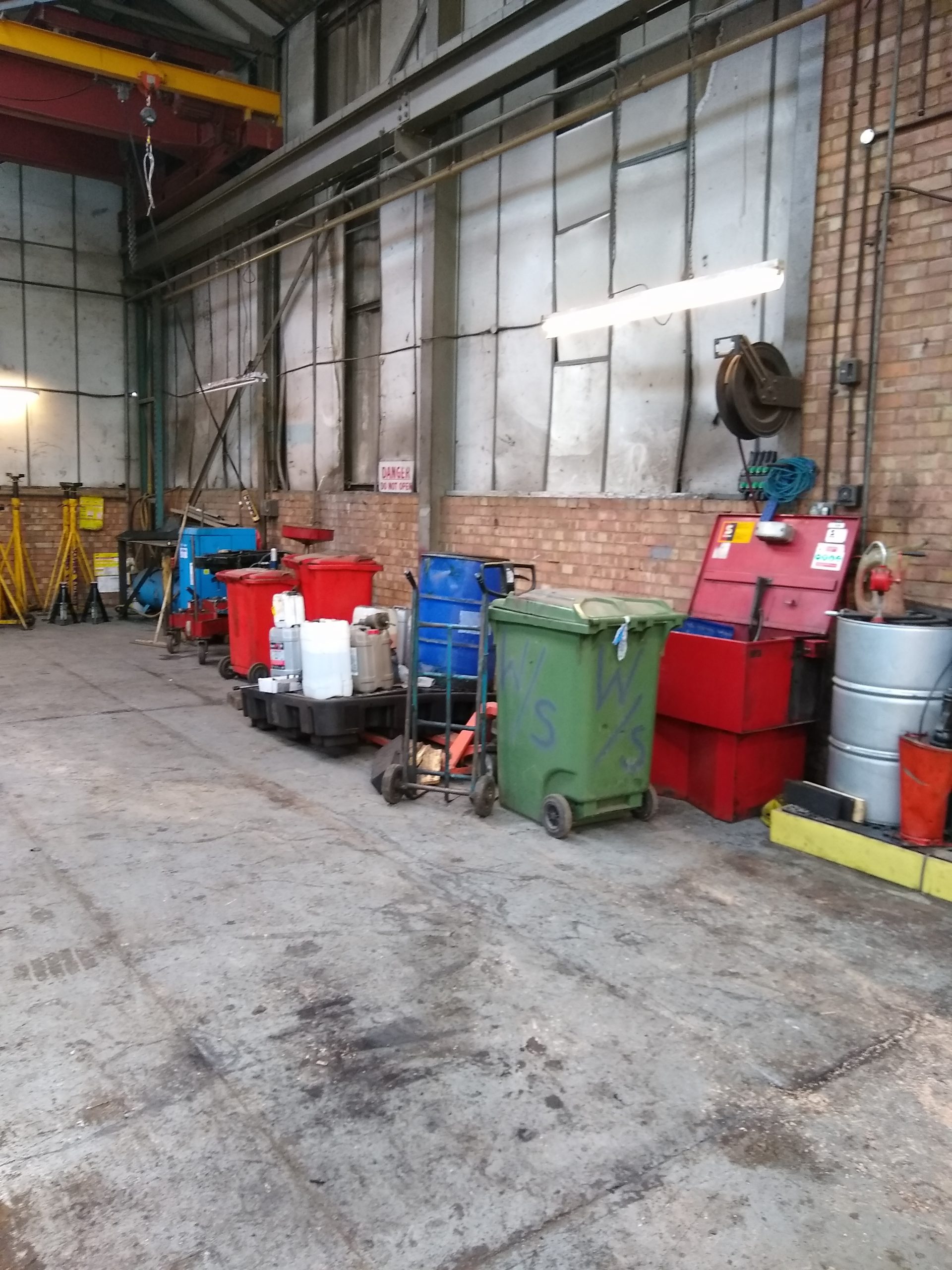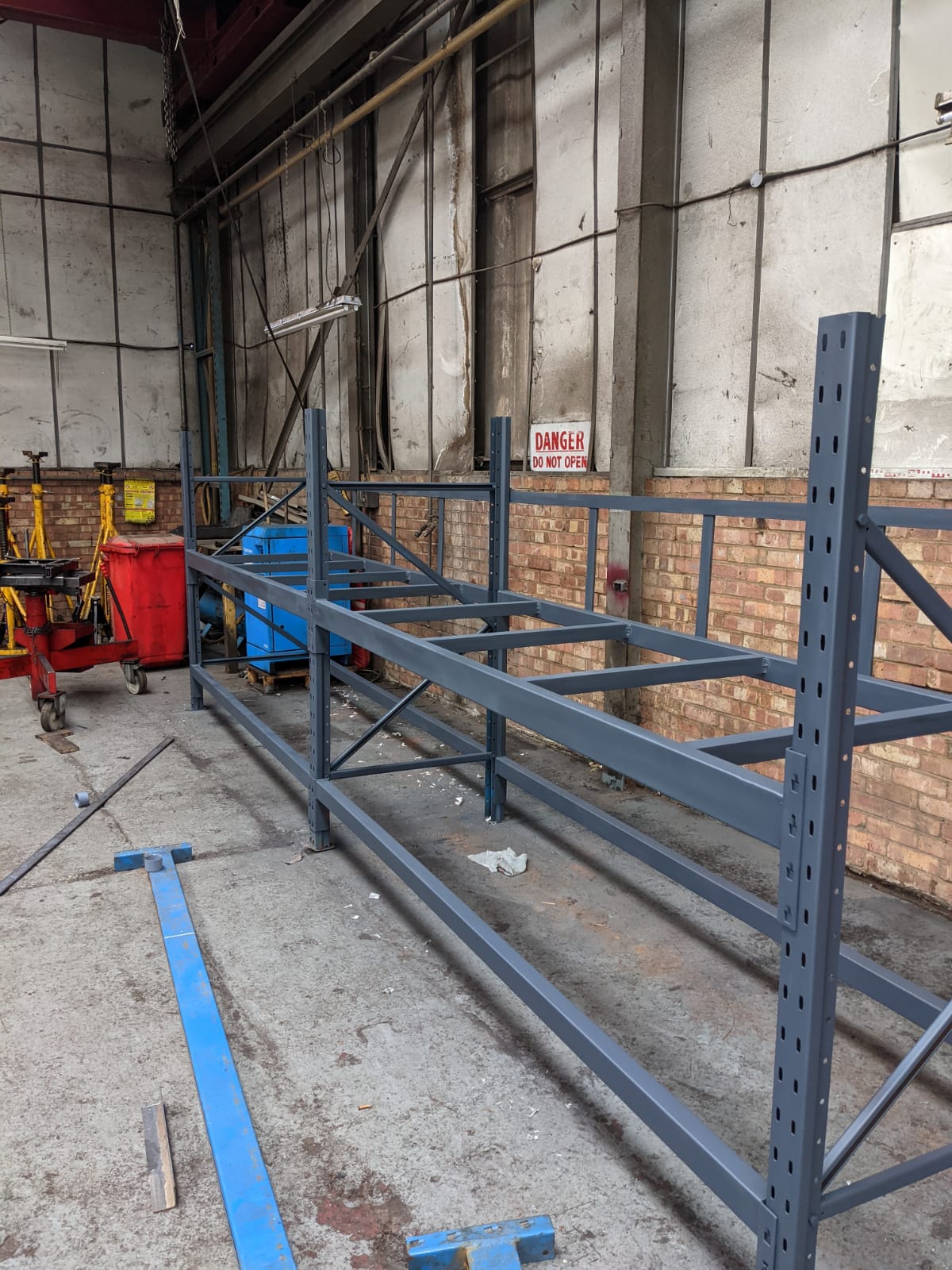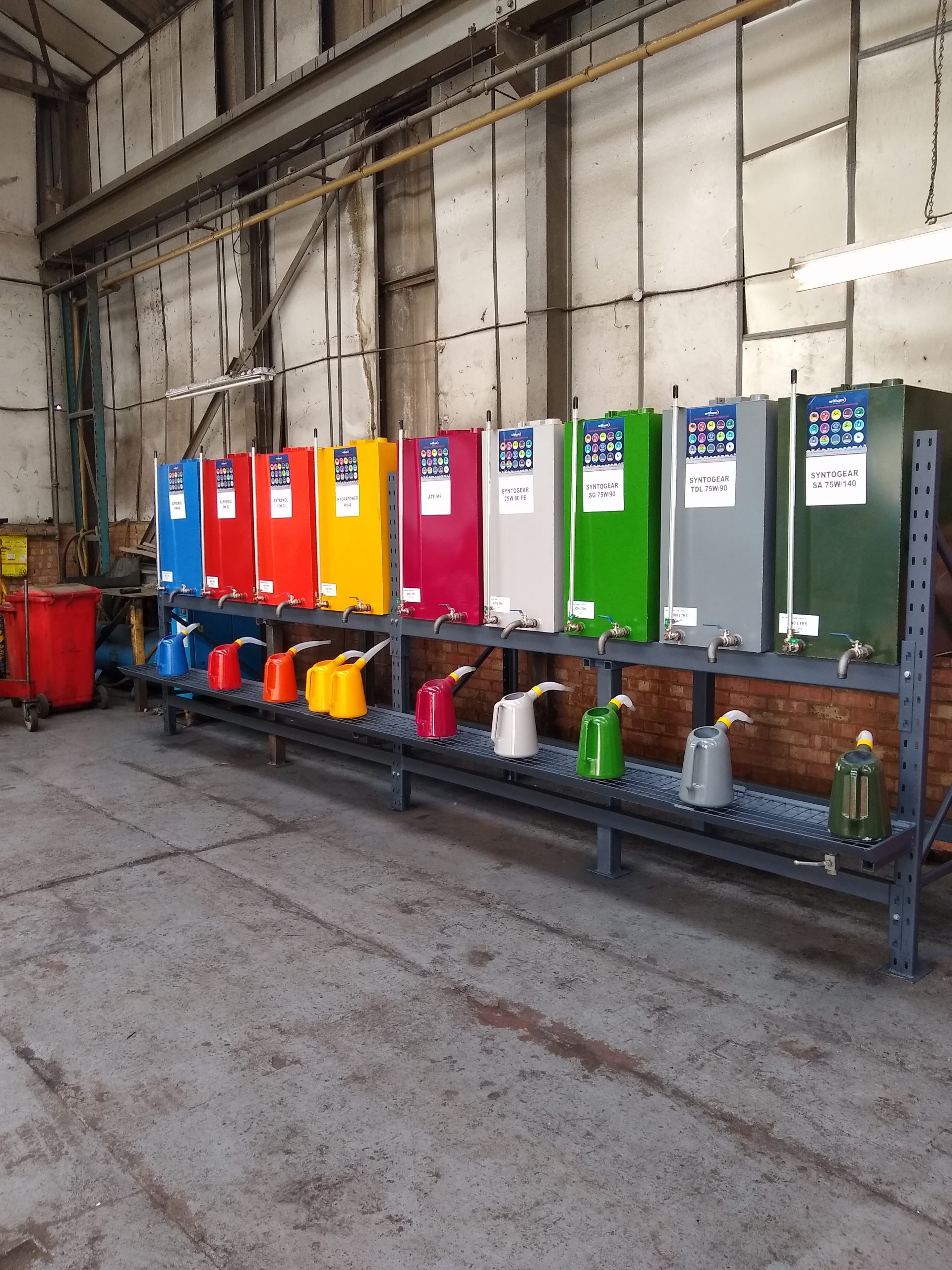How to successfully manage workshop oil storage

Unfortunately, oil is one of the most common reports of pollution, contributing to over 15% of pollution incidents each year in the UK. It can harm people, plants and marine life, damage rivers, soil, destroy natural habitats and drinking water supplies, as well as ruining workshop and garage environments.
Oil Storage regulations are governed by the Control of Pollution (Oil Storage) (England) Regulations 2001. This requires anyone in England who stores more than 200 litres of oil to provide secure containment facilities for tanks, drums, Intermediate Bulk Containers (IBCs) and mobile bowsers. There are different regulations for England Scotland and Northern Ireland and in this article, we take a closer look at oil storage for the workshop…

The basic principles of oil storage
There are 2 main principals in storing lubricants, product integrity and environmental requirements. The basis is always to create an area which is safe, clean and appropriate. Basic rules include:
1.Oil must be stored at least 10 metres away from inland or coastal waters, flood areas and 50 metres clear of a spring.
- Tanks should be on flood level or below ground level and must never be stored above roof level and kept away from areas that risk damage via impact, machinery and weather. The full Legal requirements are outlined in detail in the Oil storage regulations for businesses – GOV.UK (www.gov.uk) website which covers storage of quantities of 201ltrs and above. There are however different regulations that apply, depending on where you store your oil, how much you store and what you are using the oil for. If you choose not to comply with these regulations, you can be served an anti-pollution works notice and face prosecutions.
Different Types of Oil Containers require careful storage.
Lubricants are supplied in many ways, bulk, barrel, & various drums & small packs to meet the needs of a wide customer base. Bulk & barrels are generally supplied to commercial workshops and the other sizes to both the commercial & retail market. With the exception of bulk, the remaining sizes can all come in either plastic or metal containers depending on the supplier and also the type of product. Lubricants stored in a factory fresh sealed container will not normally degrade. Obviously, metal containers can be subject to corrosion over extended periods. In essence, the largest single container must be contained within 110% of its volume.
Storage and movement of containers is guided by lifting at work regulations, so heavy containers are to be lifted correctly and with suitable / appropriate machinery.
The temperature of the surrounding environment can affect the lubricant.
Heat is a huge risk to oil, not only from a fire point of view, but also from a volumetric point of view. Oil volume will increase as the temperature rises so contained vessels need to be vented.
Once a container is opened it will come into contact with the environment and whilst lubricants often contain Antioxidants they will start to oxidise when in contact with the atmosphere. If for example you were to leave a sample of hydraulic fluid in a glass jar open to the atmosphere for a period of time you would see it darken in colour as this happens. Elevated temperature will, as will almost all reactions, increase the speed.
Is there a way to manage lubricant storage sustainably?
Yes – oil not only needs to be stored safely and properly because it’s the law – it should be stored to help with the environment and health and safety – Bulk Storage tanks are ideal says Nigel Bottom, MD of lubricant manufacturer Witham Group – Using a system of metal bulk storage tanks in your garage and simply having all products delivered in) batches removes the need for all plastic packaging. The simple colour coded tanks have sight gauges, taps or pumps and come labelled with each lubricant name and its application. This system is easy to use for all the workshop team, helps keep working spaces ship shape, avoids spills from containers and helps avoid important oil contamination, whilst helping the environment by using no packaging. With annual maintenance the longevity of bulk tanks will outlast 50+ years! This is a very sustainable process indeed as the defunct metal tank can then be simply recycled and the metal used again.
This method of storage and use, also helps tick all the regulation requirements for oil storage and keeps users and the workshop environment as safe as possible.
Whilst bulk tanks are the most sustainable method of storage as it eliminates packaging completely, some lubricants or workshop greases cannot come in bulk and therefore looking for a lubricant supplier that offers packaging that is made from recycled materials or who offers recycling schemes for metal barrels all help businesses improve their sustainability credentials.
Bulk tank installation: before and after
What’s the number one thing that garages need to consider when storing lubricants (exposure to water, etc.)?
The best piece of advice we can give is to treat lubricants as if you were storing drinking water. Always avoid storing any products outside where water could penetrate the lid or seal. Many people assume the seals on barrels are watertight, they are generally not and are simply used as an anti-tamper method. If no other option but external storage is available always store barrels on their side. Moisture and Dirt ingress are the two main factors. Moisture can be overcome by keeping the bulk storage at as close to the same temperature at all times and dirt is simple good practise. Closed windows and auto shutting doors.
In addition to this, using air operated or electric transfer pumps and guns stops the contamination of oil in dirty transfer jugs. If jugs are used, they need to be kept in a clean environment also, upside down and empty when not in use. Bulk storage tanks should be fitted with return flaps to stop wastage of unused clean oil which can be returned to the bulk tank.
Are there ways to optimise space within the workshop for efficient lubricant storage?
There are many innovative storage solutions on the market, bulk tanks are excellent for larger volume products and bulk tanks can simply be raised off the workshop floor and downpipes fitted to both fill and empty. A simple process which will not impact the workshop floor space at all.
Bunded racks and trays are also available for smaller sizes. Try and avoid storing products for extended periods and just buy as much as your immediate needs require.
For more information about oil storage, bulk storage tanks, recycled packaging, barrel recycling schemes and other ways to ensure your workshop is clean, safe and sustainable, visit our website.






How much for 3 tanks please
Hi Andrew – thanks for your query, please can you let us know where you are based and I will ask one of our team to get in touch. Let me know the best way to contact you. Many thanks, Lucy